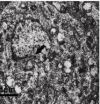(Press-News.org) The darker side of meerkats – which sees them prevent their daughters from breeding, and kill their grandchildren – is explained in a new study.
Research into the desert creatures – which live in groups with a dominant breeding pair and many adult helpers – shows that the alpha female can flourish when it maintains the sole right to breed.
The study shows how this way of life, also found in many animals such as ants and bees, can prove effective despite its sinister side.
Dominant meerkats control breeding within their group through violence, by banishing any other females who reproduce, killing their offspring, to ensure plentiful resources for the alpha pair's pups.
Scientists studied the impact of giving contraceptive jabs to adult female helpers in 12 groups of meerkats in the Kalahari Desert, to ensure that they could not reproduce for six months.
During this time, dominant females were less aggressive towards helpers and foraged more, gaining more weight and having bigger pups. The female helper meerkats experienced less violence than usual from the alpha female, and provided more care and food for the pups.
The study, published in Nature Communications, was carried out by the Universities of Edinburgh, Cambridge, Exeter and Pretoria with the Kalahari Meerkat Project in South Africa. It was supported by the Natural Environment Research Council.
Dr Matthew Bell of the University of Edinburgh, School of Biological Sciences, who led the study, said: "The meerkat way of life is a paradox, in which alpha females will attack their daughters, banish them from the group and infanticise their offspring.
"Our study reveals that dominant animals are worse off when subordinates in their group try to breed – explaining why they brutally suppress others much of the time. We expected this result, but its impact exceeded our expectations."
INFORMATION:
Meerkats' sinister side is secret to their success, study shows
2014-07-22
ELSE PRESS RELEASES FROM THIS DATE:
NUS scientists use low cost technique to improve properties and functions of nanomaterials
2014-07-22
The challenges faced by researchers in modifying properties of nanomaterials for application in devices may be addressed by a simple technique, thanks to recent innovative studies conducted by scientists from the National University of Singapore (NUS).
Through the use of a simple, efficient and low cost technique involving a focused laser beam, two NUS research teams, led by Professor Sow Chorng Haur from the Department of Physics at the NUS Faculty of Science, demonstrated that the properties of two different types of materials can be controlled and modified, and consequently, ...
Children's impulsive behaviour is related to their brain connectivity
2014-07-22
Researchers from the University of Murcia have studied the changes in the brain that are associated with impulsiveness, a personality trait that causes difficulties in inhibiting a response in the face of a stimulus and leads to unplanned actions without considering the negative consequences. These patterns can serve as an indicator for predicting the risk of behavioural problems.
A new study headed by researchers from the University of Murcia analyses whether the connectivity of an infant's brain is related to children's impulsiveness.
"Impulsiveness is a risk factor ...
Rigid connections: Molecular basis of age-related memory loss explained
2014-07-22
From telephone numbers to foreign vocabulary, our brains hold a seemingly endless supply of information. However, as we are getting older, our ability to learn and remember new things declines. A team of scientists around Associate Prof Dr Antonio Del Sol Mesa from the Luxembourg Centre for Systems Biomedicine of the University of Luxembourg and Dr Ronald van Kesteren of the VU University Amsterdam have identified the molecular mechanisms of this cognitive decline using latest high-throughput proteomics and statistical methods. The results were published this week in the ...
New water balance calculation for the Dead Sea
2014-07-22
This news release is available in French.
Tel Aviv/Halle, Saale. The drinking water resources on the eastern, Jordanian side of the Dead Sea could decline severe as a result of climate change than those on the western, Israeli and Palestinian side. This is the conclusion reached by an international team of researchers that calculated the water flows around the Dead Sea. The natural replenishment rate of groundwater will reduce dramatically in the future if precipitation lowers as predicted, say the scientists, writing in the journal Science of the Total Environment. ...
Novel methods may help stem cells survive transplantation into damaged tissues
2014-07-22
New Rochelle, NY -- Stem cells offer much promise for treating damaged organs and tissues, but with current transplantation approaches stem cell survival is poor, limiting their effectiveness. New methods are being developed and tested to improve the survival and optimize their therapeutic function after transplantation, as described in a Review article in BioResearch Open Access, a peer-reviewed journal from Mary Ann Liebert, Inc., publishers. The article is available free on the BioResearch Open Access website.
In the article 'Preconditioning Stem Cells for In Vivo ...
Study compares cost-effectiveness of weight-loss programs and drugs
2014-07-22
DURHAM, N.C. – In a cost-effectiveness analysis of commercial diet programs and pills, the Weight Watchers program and the drug Qsymia showed the best value for the money. The Jenny Craig regimen generated the greatest weight loss, but was also the most expensive option tested, according to researchers at Duke-National University of Singapore (NUS) Graduate Medical School.
The findings, published in the June issue of the journal Obesity, provide important information on the health and weight-loss benefits per dollar spent as insurance carriers consider coverage for weight ...
The nostalgia effect: Do consumers spend more when thinking about the past?
2014-07-22
Say you are out clothes shopping and you spot something that brings you back to a special time from your childhood when you were surrounded by friends and family. Suddenly, you find yourself purchasing an expensive shirt that makes you feel like a kid again. According to a new study in the Journal of Consumer Research, we're more likely to spend money when we're feeling nostalgic.
"We wondered why nostalgia is so commonplace in marketing. One reason could be that feeling nostalgic weakens a person's desire for money. In other words, someone might be more likely to buy ...
Trying to get kids to eat healthier? Don't tell them veggies are good for them
2014-07-22
At some point, most kids will hear that drinking milk helps make their bones strong or that fish is food for the brain. But do these messages foster the idea that if something is good for us, it must surely taste bad? According to a new study in the Journal of Consumer Research, when children hear about the benefits of healthy food, they're less likely to eat it.
"We predicted that when food is presented to children as making them strong or as a tool to achieve a goal such as learning how to read or count, they would conclude the food is not as tasty and therefore consume ...
You deserve it! Are consumers more likely to buy unique products when made to feel special?
2014-07-22
Graduating from college is an important life event often attributed to being smart and working hard. Many people celebrate this milestone achievement by buying themselves an expensive gift or taking a dream vacation. A new study in the Journal of Consumer Research shows that consumers who attribute their successes to internal character traits rather than hard work are more likely to select unique products.
"We found that consumers who attribute feelings of pride to their unique character traits—rather than how hard they worked to accomplish something—are more likely to ...
HIF 1α viral vector inhibits hippocampal neuronal apoptosis: The future of gene therapy
2014-07-22
Hypoxia-inducible factor 1 (HIF-1) attenuates amyloid-beta protein neurotoxicity and decreases apoptosis induced by oxidative stress or hypoxia in cortical neurons. Prof. Xiqing Chai and co-workers from Hebei Chemical and Pharmaceutical College, China constructed a recombinant adeno-associated virus (rAAV) vector expressing the human HIF-1α gene (rAAV-HIF-1α) efficiently, and tested the assumption that rAAV-HIF-1α represses hippocampal neuronal apoptosis induced by amyloid-beta protein. Their results confirmed that rAAV-HIF-1α significantly reduces apoptosis ...




